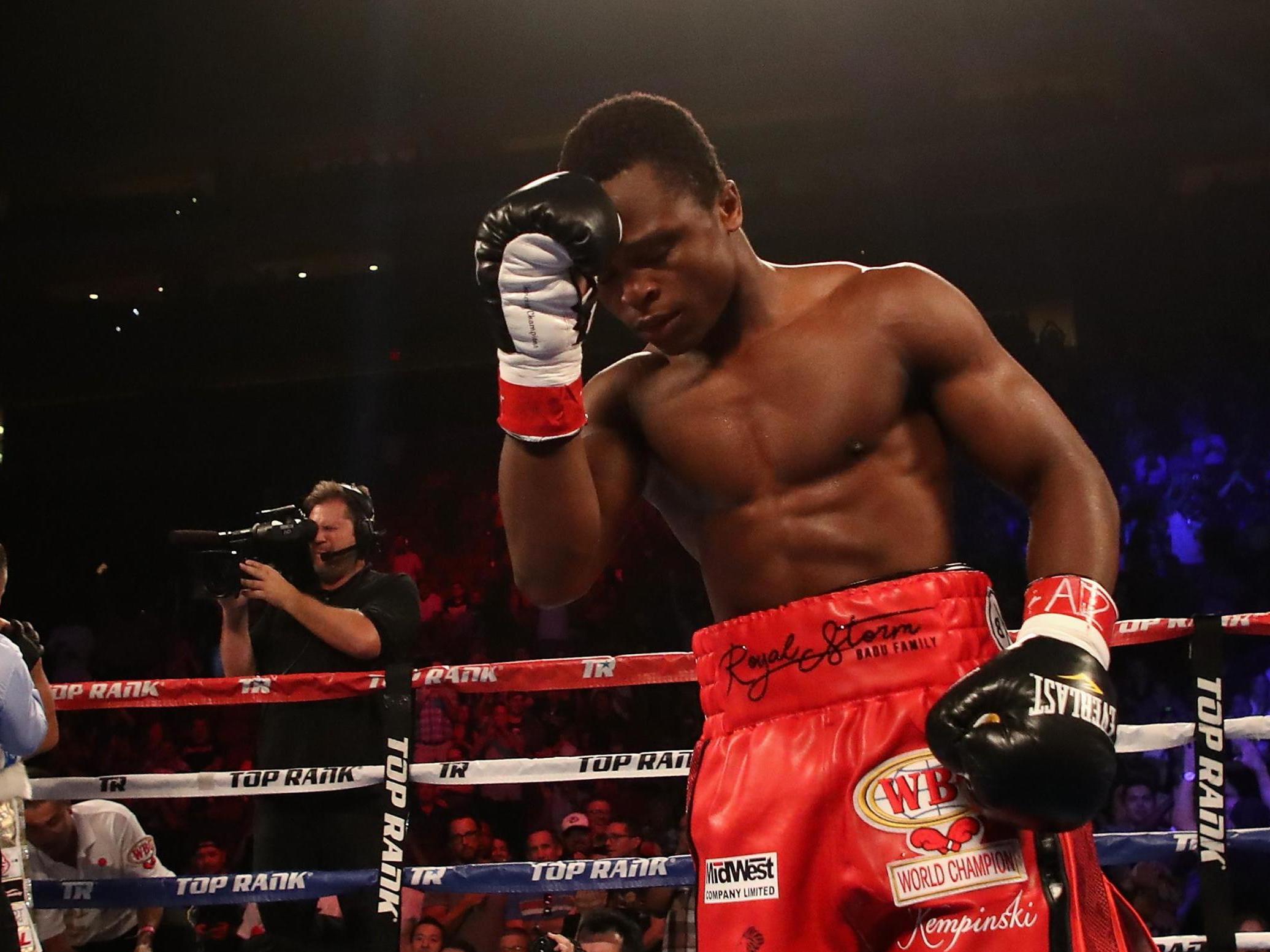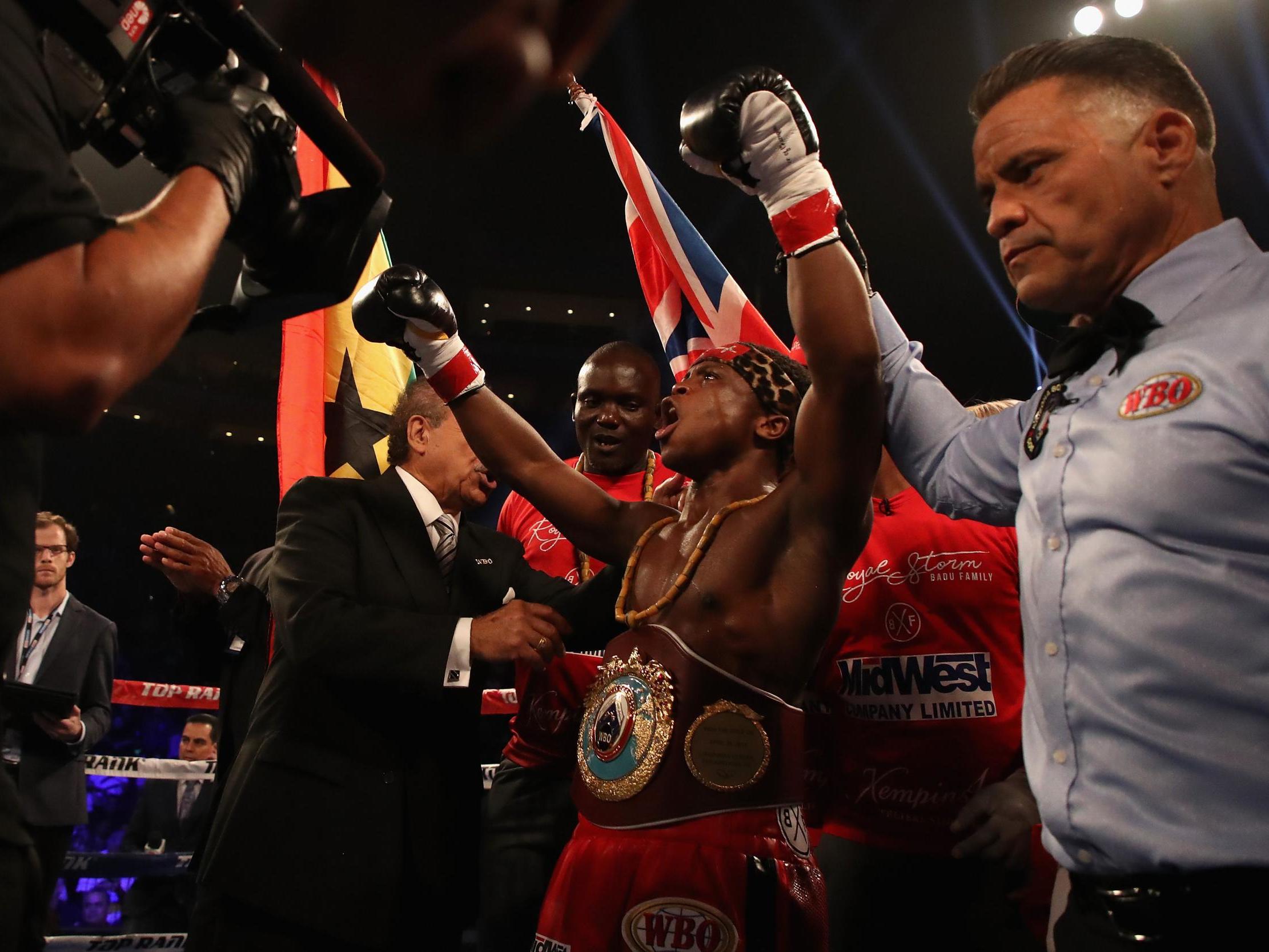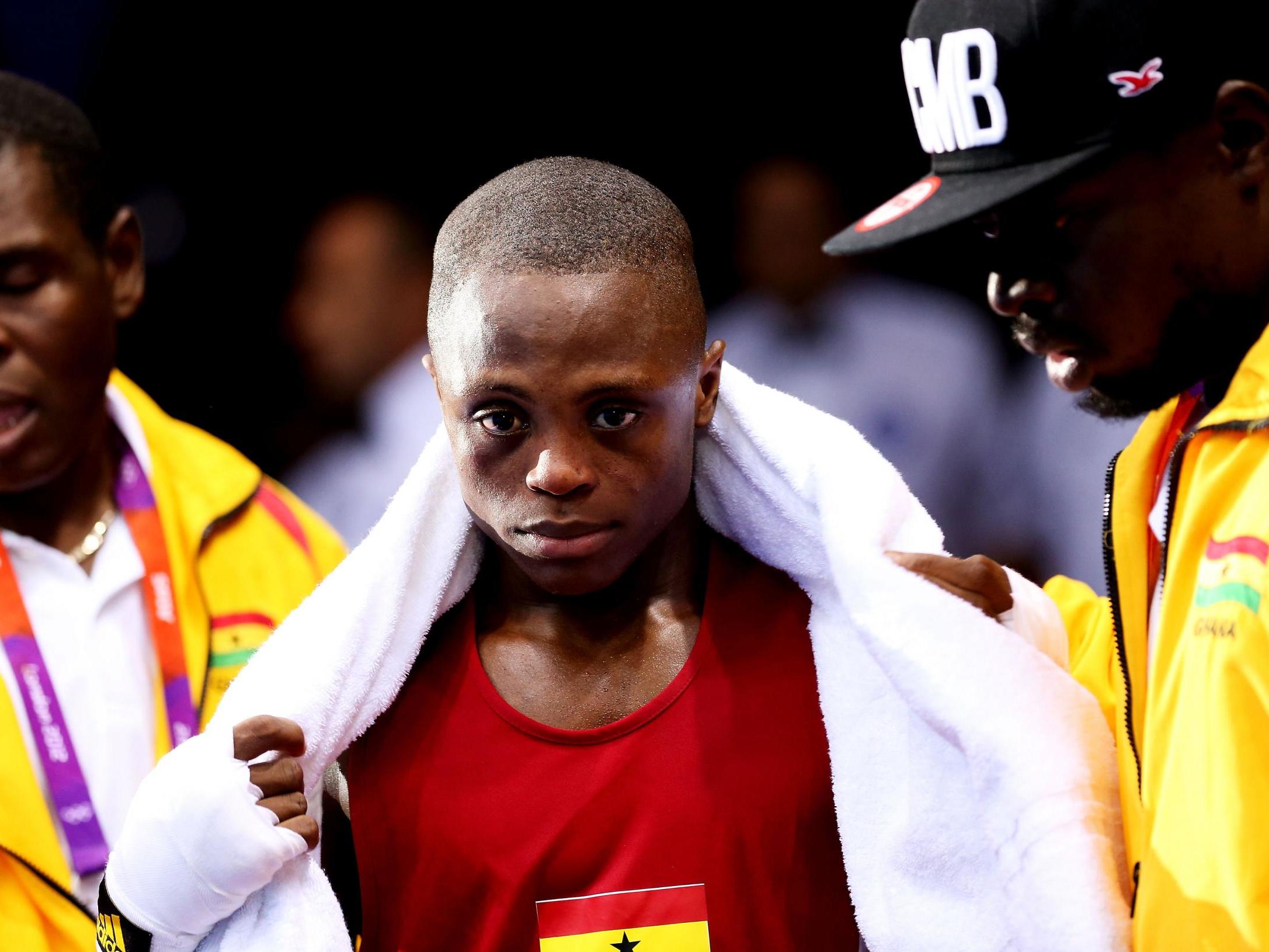Isaac Dogboe: ‘We can talk about racism now, but that doesn’t mean it’s going to end’
Exclusive interview: Former world champion, who grew up in south London, discusses the Black Lives Matter movement, racism, faith, and inspiring people beyond boxing

Your support helps us to tell the story
From reproductive rights to climate change to Big Tech, The Independent is on the ground when the story is developing. Whether it's investigating the financials of Elon Musk's pro-Trump PAC or producing our latest documentary, 'The A Word', which shines a light on the American women fighting for reproductive rights, we know how important it is to parse out the facts from the messaging.
At such a critical moment in US history, we need reporters on the ground. Your donation allows us to keep sending journalists to speak to both sides of the story.
The Independent is trusted by Americans across the entire political spectrum. And unlike many other quality news outlets, we choose not to lock Americans out of our reporting and analysis with paywalls. We believe quality journalism should be available to everyone, paid for by those who can afford it.
Your support makes all the difference.“If you look at Muhammad Ali, the things that defined him were outside of boxing,” says Isaac Dogboe, after an hour charged by emotion, hope, and occasional despair, spanning the Black Lives Movement, the racism that pervaded his childhood in south London, and his hopes of inspiring the impoverished in his birthplace of Ghana. “That is the real reason, I think, why everyone tries to emulate Ali.”
Long before Dogboe’s world title glory, sudden celebrity, and recent grimacing defeats, his horizons had broadened beyond the sport he’s hopelessly addicted to. A descendant of a Ghanaian royal family, his heritage is interlaced by war, politics and faith rather than financial wealth: his great-grandfather was a member of the Gold Coast Regiment during Second World War, his grandfather the presiding ruler of Anlo state, while his uncle is a prophet. He never needed to fight. It was an obsession and means of discipline before it ever became a livelihood. In his words, he is a “vessel” in the sport, leaning on God’s teachings, with a duty to inspire.
Two years after turning professional, Dogboe returned to Ghana, determined to shatter the country’s perception that boxing was a vocation for those “from the slums, without an education”.
“We wanted to empower the people,” he says. “To help them understand that, although there are not a lot of resources, that you have to utilise everything that’s in your hands.” Within the space of 10 fights, while still barely in his twenties, he had brought together British and American consulates, ministers and ex-presidents through self-financed boxing shows in Accra.
It’s hardly to distract from or undersell his ability. Dogboe is a tremendous and proven fighter, a cartridge of power and destructive technique, condensed into a 5’4” frame that moves in a whirlwind of relentless punches. Within three years of starting amateur boxing, he had won the English national championships, qualified for the 2012 Olympics, and been handpicked for sparring by some of the best boxers in the world.
It was during those teenage years, after moving to Kennington, south London aged eight, that Dogboe first experienced racial profiling: be it when he was “cornered by two vans and an army of police jumped out to stop and search” him or when he was held at knifepoint for being from a certain area while collecting one of his younger brothers from school. The protests that erupted following the death of George Floyd have resonated with him for a variety of reasons, and Dogboe speaks with far greater consideration than when discussing the trivialities of sport.

“We can talk about racism now, but that doesn’t mean it’s going to end,” he says. “I believe that racism is everywhere, but it’s a broader subject. I never experienced racism in school in south London, we all played together, we were our brother’s keeper. For me, personally, I would say it’s evident how some people are being treated.
“It’s not just about George Floyd being killed, it’s a result of the unpleasantness people feel towards how the police or society are treating them. People have different opinions, but nothing happens without a source.
“The Black Lives Matter movement is a result of something that’s happened over a long time, and people have had enough. I’ve had my own share of experiences. The police are there to protect us, but sometimes, at what length are they willing to go to?
“One thing I don’t understand, though, is the fact that people were destroying other people’s businesses,” he adds. “It means that the poverty line is going to rise. You have mothers working three jobs at a time to make ends meet and pay bills, so when I see people looting the shops it upset me in a way. As an athlete, Dogboe feels a shared responsibility to be a role model and motivate those who are suffering: “People are going through so much in their lives, and sometimes, you need people to say it’s okay how you’re feeling, but that you’re going to get through it. That’s the thing we go through all the time. We rise above adversities. We get knocked down and get up again, and that’s how life is going to treat you. It’s never a straight road, there are bumps, but it’s about how you keep going when you fall and get back up. Nothing is easy in this life. You have to work for it.”
It’s a mantra Dogboe has recently been forced to apply to his own career. A year has passed since he was knocked out in a grisly rematch against Emmanuel Navarrete, the Mexican who inflicted Dogboe’s first professional defeat and took his world title. He hasn’t fought since and has spent time in between Ghana, the US and the UK. “It was a bleak moment for me, to put it in a nutshell,” he says. “It led me to make a lot of changes, certain decisions I never thought I would.

“I thought that winning the world title was going to change my life, it was the most important thing, and I thought I’d be the happiest person in the world, so much bliss, and everything. But after a while, I just said to myself, is this it?
“I guess I wasn’t prepared for the aftermath. Navarrete is a great fighter. He earned it. But it was only when I lost [the title] that I really wanted it again. Sometimes, when you have something in your hands, you don’t know the true value of it.”
“When it comes to fighting, it doesn’t mean that you hate your opponent, you just want to win,” he says. “You don’t want to let people down, it’s like you’re carrying a nation on your back, people’s hopes and aspirations. I don’t wish evil on any of my opponents.
“I pray to god to protect us both and that we come out of the ring safely and carry on living our lives. Boxers are some of the kindest people you’ll ever know, they go through a lot, but they have genuine heart. They don’t get as much credit because people only see the end result. We go through a lot of emotions, but this is the sport we chose.”
Not for the first time, Dogboe finishes with a proverb: “‘Many are the plans in a man’s heart, but it’s God who determines his steps.’ And I’m beginning to realise that now, in boxing and in my life in general.”
Join our commenting forum
Join thought-provoking conversations, follow other Independent readers and see their replies
Comments